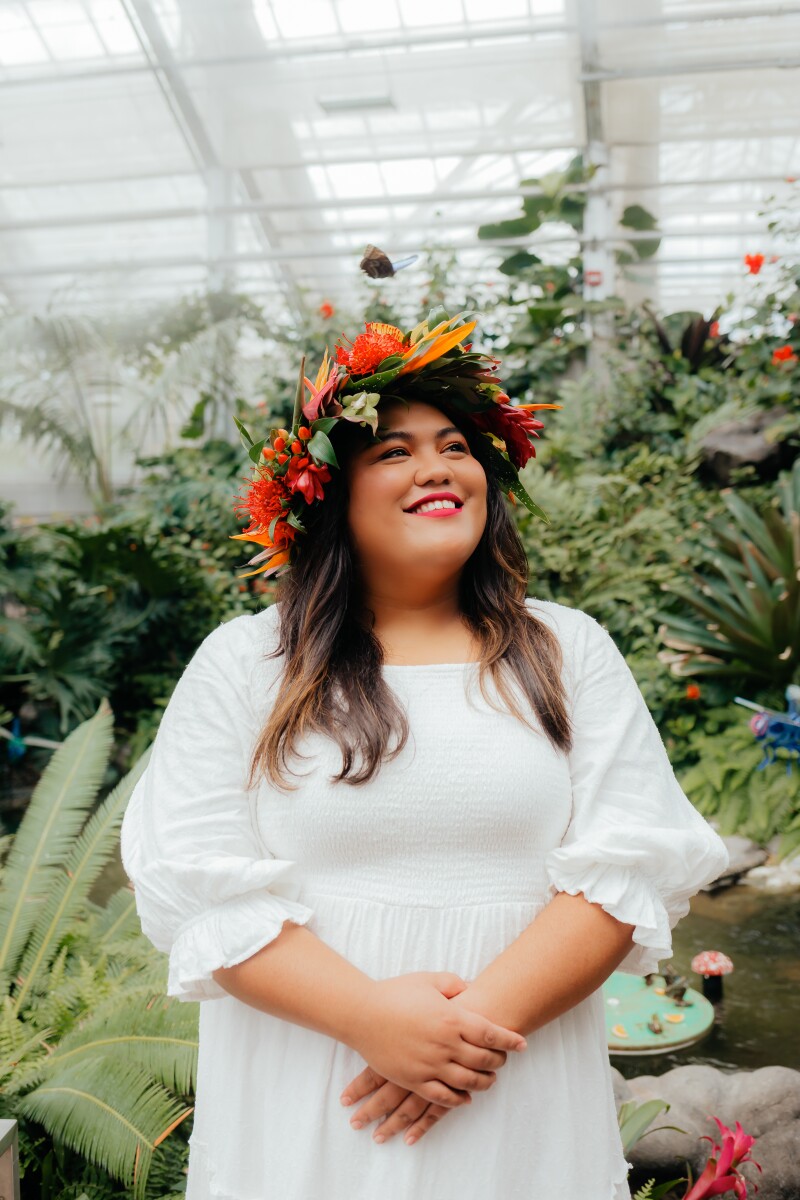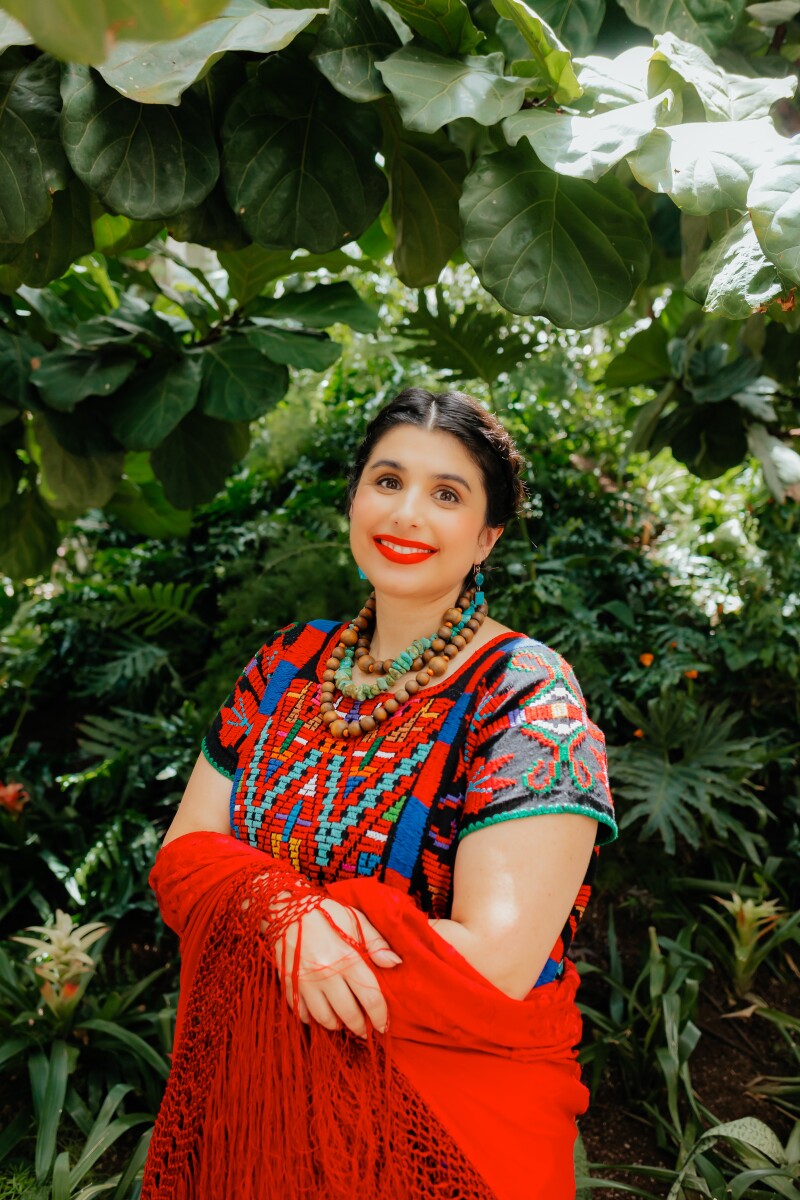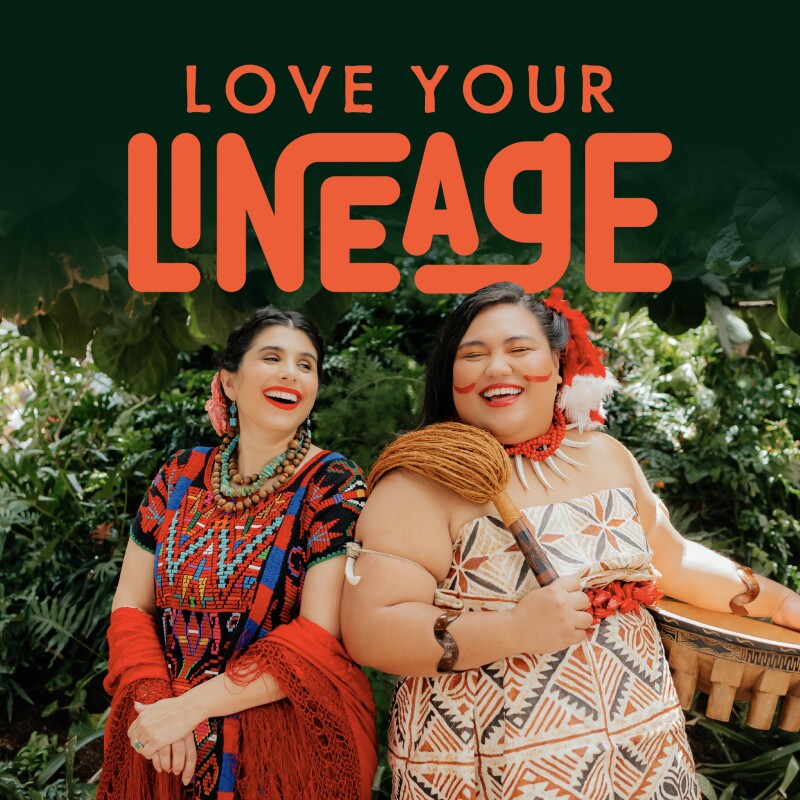Light emanates from Michelle Thorley and Miya Jensen; it's the kind of light that pulls you in, wraps its arms around you, and lets you know that you’re finally in a safe place. It’s a safe place that I am happy to linger in as I talk to the two women who are changing Church culture and our understanding of family history.
Making a safe place is, in fact, the goal of Michelle and Miya’s long overdue family history podcast, Love Your Lineage. The podcast is targeted toward members of the BIPOC (Black, Indigenous, and People of Color) community, but trust me when I tell you that this is a podcast for anyone who considers themselves a disciple of Christ.
“We want people to feel seen and heard as they deal with the complexities of BIPOC family history,” Miya tells me. As a person of color who’s listened to the podcast myself, it feels as though someone has finally opened a locked and bolted door and welcomed me into a space that I never knew I could inhabit.
▶ You may also like: New LDS Living podcast shines light on unique family history challenges
Both Michelle and Miya are lifelong members of the Church and also members of the BIPOC community with mixed-race ancestry. In Love Your Lineage, they do what few in the Church have done before: talk about authentic, often difficult, aspects of family history. Regardless of your relationship with family history, positive or negative, whether or not you’re a part of the BIPOC community, this is a podcast that you need to be listening to. In fact, you’re going to want to listen to this podcast more than once as Michelle and Miya will not only guide you through many of the discomforts of family history but will also give you resources for your family history journey.
So who are these women, and what is their connection to family history?
Miyamoto Loretta Jensen is a professional genealogist; in fact, she’s the only professional Polyneisan genealogist in the world who specializes in research in all of Polynesia. Born and raised in Laie, Hawaii, Miya has always been steeped in the history of her ancestors. “My name is all about my family history,” she explains. “Miyamoto was the surname of my Japanese ancestress Taka Miyamoto. Loretta is the name of my dad’s only sister, and my maiden name, Wilson, is from my German ancestors that immigrated to American Samoa. Jensen is my married name, and it’s Swedish.”

Hearing this, I’m impressed, since I’ve rarely encountered someone who could so thoroughly explain the origin of their names outside of “my parents liked the name.” It is clear that her Samoan, Japanese, Hawaiian, German, and French ancestries are sources of immense and continual strength for Miya. “I grew up connected to my histories and communities,” she explains. “I heard stories, asked questions, visited ancestral sites, and read books about my Hawaiian history. I still strive to learn more about all facets of who my ancestors are, but family history has always just been a part of me.”
For people like me who grew up disconnected from their histories and communities, it’s hard not to feel the smallest ounce of jealousy toward Miya’s connection to her family history. It’s a feeling that Michelle Franzoni Thorley, a visual artist and anti-racism consultant, understands well.
Born and raised in Utah County as the daughter of a first-generation immigrant from Mexico and a 19th-generation European-American, Michelle had learned to live without the knowledge of where she came from. That is, until she saw a familiar surname on a building while she was living in Chile.

“I saw the name Molina—which I recognized from the little bit of family history I knew—on one of the buildings and thought, ‘I wonder if that’s my family?’ I wanted to find my family, but I didn’t know where to start, so I prayed. I got home [back to the states] and started rifling through old boxes until I found an old family history chart.”
That discovery led Michelle to a little-known family history resource: Facebook. “People don’t know that Facebook is a great family history resource,” she exclaims. “There are family history groups there where you can find people searching for the same names you are. It was through Facebook that I saw a picture of my great-grandparents for the first time and met a distant uncle.” Michelle now has a better understanding of her mixed ancestry, which includes Mexican, Indigenous, Italian, African, and Swedish.
On their podcast, the women and their guests explore topics such as dreams, poverty, shame, body dysmorphia, internalized racism, transitional characters, and genealogical consciousness. And though the topics may feel heavy to some, every episode is tied back to Christ. “The only one who has been,” Miya says in episode 3, “and still is the best transitional character for all of us, through all of time, through all of space, and throughout eternity, is our Lord and Savior Jesus Christ.” It’s an impactful and healing statement at the end of an episode that discusses the transatlantic slave trade.
Each episode includes guests who have professional backgrounds in family history, history, and mental health, and each is a love letter to community and ancestry. When I asked Michelle and Miya what their favorite episode was, it felt a bit like asking who one’s favorite child is—and for a moment I’m convinced that they won’t be able to choose just one.
“My favorite episode is probably the one with Professor Joel Selway. It was a freeing conversation that provided so much validation for me,” Michelle responds. “I truly do love every episode though.”
Miya goes next: “It’s so hard to choose, but I think my favorite episode is the one with Dr. Ofa. Being in the space with another Pacifica woman who has a shared culture was validating for me. And I appreciated the tools she gave to help in the work of family history.”
The tools and resources mentioned throughout the podcast include therapy, dream journals, books, and cooking. (Remember, I said you’ll want to listen to Love Your Lineage more than once!)
We’ve been chatting for a while now, and I finally ask the question “Why is family history important?”
“The prophecy of Elijah asks us to repair the disconnect,” Michelle says. “The spirit of Elijah is the spirit of love,” Miya adds. “Love turns us to each other, and when our hearts are turned to each other, our hearts turn upward to heaven. That’s restoration.”
First mentioned in Malachi 4:5–6, the spirit of Elijah was explained by the Prophet Joseph Smith in Doctrine and Covenants 128:15: “For their salvation is necessary and essential to our salvation, as Paul says concerning the fathers—that they without us cannot be made perfect—neither can we without our dead be made perfect.”
These are words that make perfect sense to Miya, as she says in episode 1 of Love Your Lineage: “Indigenous Oceanians always believed that the past was in front of them and the future was behind them; time is a circle.”
“There is not just one interpretation of the scripture in Malachi,” Michelle says as Miya nods in agreement, “It’s more than just researching—it’s connecting to our kindred dead, and it’s each of us being a good ancestor.”
“The heart is an organ,” Miya says. “You have to feed it, which means that if you want your heart to be turned to your fathers, it’s something you have to work on and grow your whole life.”
For BIPOC people, many of whom have mixed-race ancestry resulting from the harms of colonization and enslavement, discovering and reconnecting with one’s family history can be an uphill and exhausting battle. Sadly, the realities of BIPOC family history are often unspoken about in Church culture, which is why I ask Miya and Michelle, “What do you think needs to change in the Church in regards to family history?”
The question makes all of us chuckle a bit, as this is a topic that the three of us have frequently discussed in our private conversations. They both pause a moment, and then Miya begins: “Everything! Everything needs to change. The biggest thing, though, that we need to change comes in terms of education. In order to do authentic family history, you have to know authentic history. As a Church, we need to realize that when it comes to family history, it’s not one size fits all. Every family needs different tools.”
“And with that education,” Michelle says, “there needs to be both some racial literacy and cultural competency. You need to be able to place what you find in context with what was and is happening in the world.”
“I want to make it clear, though,” Miya says, “that what we are not doing is asking people to connect to those that cause them harm. What we’re asking people to do is to challenge their view of what family history actually is.”
I have one final question for Michelle and Miya—one that I have been asking myself for quite some time. “How does loving our ancestors help us follow the commandment to love our neighbors?”
Miya answers, “When I learn about my ancestors, it makes it easier for me to love my neighbor. You have to let the lessons from your ancestors in, and it will transform how you see your neighbor.”
“Inclusion equals love,” Michelle continues, “and when we include and give people access to the appropriate resources, community happens. Family history is giving access to our kindred dead.”
“This is a podcast for everyone,” Miya says, “because the more we tell our authentic stories, the more we realize that we are all connected in Christ.” What better incentive can there be to “love your lineage” than a connection to Jesus Christ? As Miya says, “We have more roots than branches,” so come and listen with me as we grow our common connection with the most important root of all: Jesus Christ.
Love Your Lineage
This podcast is centered in the BIPOC family history experience, although we invite all to listen and find and claim their space.



